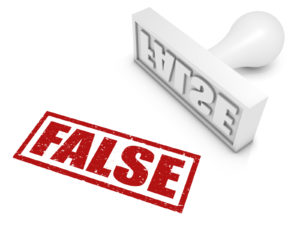 By Whitney C. Gibson, Internet defamation attorney at Vorys who works closely with Agnes + Day’s Crisis Intelligence Team.
By Whitney C. Gibson, Internet defamation attorney at Vorys who works closely with Agnes + Day’s Crisis Intelligence Team.
False online reviews have become problematic for many businesses today, whether made by unhappy customers, disgruntled former employees or competitors. In fact, last September a New York attorney general fined 19 companies a total of $350,000 for false online reviews.
All too often, we have seen dishonest companies damage their competitors’ reputations online by making (or hiring someone to make) a series of false statements on review-based websites. Competitors regularly turn to the likes of RipoffReport.com, PissedConsumer.com and Yelp.com, websites structured such that virtually anybody can anonymously post false reviews.
False reviews, which are often disguised as write-ups from genuine dissatisfied customers, typically lead to poor ratings and, ultimately, a poor reputation for the victimized businesses. In fact, a 2011 Washington Post article cites a Harvard Business School study that revealed a one-star rating change on Yelp can lead to a difference in revenue for a company of five to nine percent.
If a business owner suspects or knows there is false information online about his or her company, he or she may be told that false reviews cannot be removed from the internet. The good news for the victims of false and possibly defamatory online reviews, however, is that this is simply not true. There are, in fact, several solutions.
False Review Removal Strategies
One simple step that may be taken is contacting the person who posted the information by issuing a cease and desist letter, or negotiating with them to take down the content. Additionally, you can contact the website, or website host, and explain how the information violates their terms of use and request they remove it.
Another option is to obtain a court order against the individual who posted the information online, which can then be submitted to the appropriate website hosting the false review, as well as search engines (who typically honor the court orders and remove the content). This strategy often is utilized when dealing with anonymous posters who falsely believe the anonymity will shield them from any liability. We have successfully worked with cyber investigators and used the court’s subpoena powers to identify anonymous persons publishing false online reviews, and to ultimately hold those individuals responsible for their actions. Once we are able to identify the anonymous posters, we can obtain an injunction from the court to submit to the website and search engines.
Can you claim damages on such an attack?
When a competitor publishes a false review about your business online, or a fake review touting their own company, this violates the United States’ Lanham Act. The Lanham Act prohibits false advertising by competitors and provides that a business can recover significant damages, including treble (triple) damages, disgorgement of the competitors’ profits, costs of corrective advertising, and attorneys’ fees if the publication of the false review is willful – which it overwhelmingly is. [15 U.S. Code § 1117(a)].
If you are the victim of false, and possibly defamatory, reviews about you or your business on the internet, realize that there are solutions to this problem. But it is also critical to act swiftly. In the cases of defamation, most states have a one year statute of limitations. Therefore, it is important for potentially defamed parties to consult with an attorney as soon as possible. If you need assistance with false reviews or other internet-related issues, contact us.
Editor’s note: If you’re faced with this type of Internet attack, feel free to get in touch with Whitney directly, or reach out to Agnes + Day and we’ll set you on the right track.
Other related articles:
- Your Legal Options When Dealing with Negativity on Ripoff Report (Video)
- 3 Benefits of a Pre-Crisis Online Vulnerability Audit
- Fake Reviews: How to Protect Your Brand (Video)
Whitney Gibson is an attorney in the Cincinnati office of Vorys, Sater, Seymour and Pease LLP. He has experience representing companies and individuals in cases involving Internet issues, including Internet defamation. Whitney works closely with Agnes + Day’s Crisis Intelligence Team. Check out Whitney’s Internet defamation blog, or follow Whitney on Twitter.
